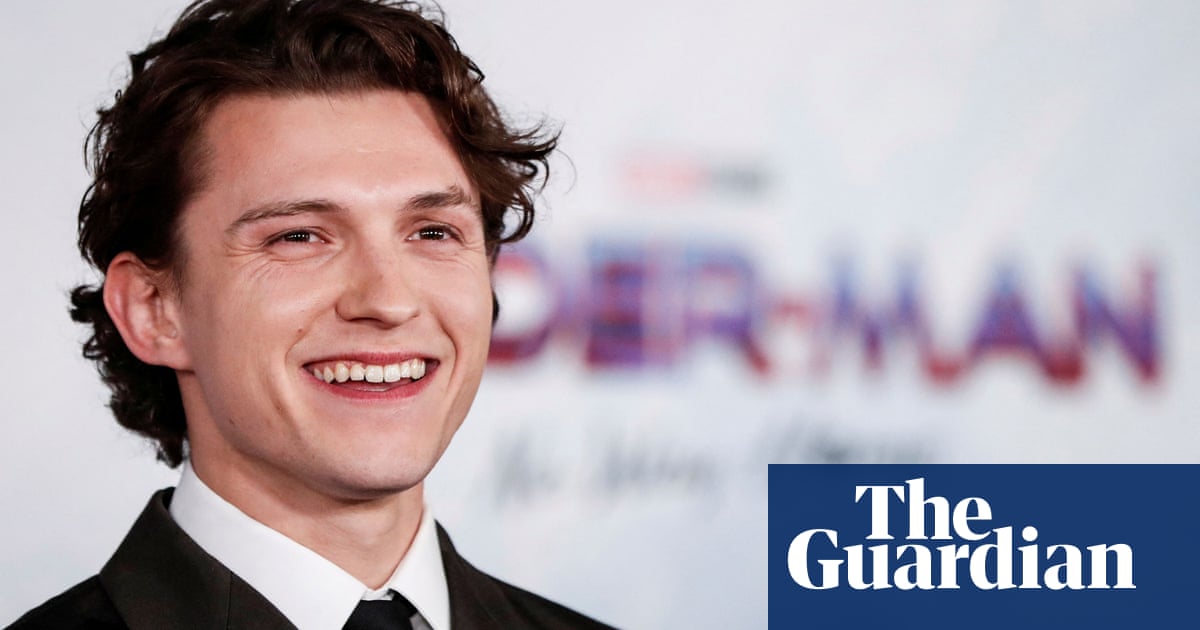
There is dream theatre casting – and then there is persuading Spider-Man to play Romeo. The news this week that Tom Holland, the megastar 27-year-old (Instagram followers: 66 million) at the heart of Marvel’s web-slinging franchise will be appearing in a “pulsating” new West End production of Shakespeare’s tragedy has redefined “hot ticket” ahead of its opening on 11 May.
There are no details on his Juliet, and tickets are not yet on sale, but with more than 3m likes of Holland’s post announcing the show, it’s fair to say the director, Jamie Lloyd, can be confident of a hit.
Lloyd is well known for his bold and highly successful star casting, having recently directed Nicole Scherzinger in an acclaimed Sunset Boulevard, and previously brought Emilia Clarke (The Seagull) and James McAvoy (Cyrano de Bergerac) to the London stage.
But he is far from the only person behind a celebrity boom time for London theatre fans, with Sarah Jessica Parker and Matthew Broderick currently starring in Plaza Suite, Matt Smith opening this week in An Enemy of the People, Felicity Huffman appearing in Hir and Succession’s Sarah Snook helming The Picture of Dorian Gray (Logan Roy himself, Brian Cox, will star in A Long Day’s Journey into Night from May).
That’s not counting Cara Delevingne (Cabaret), Billy Crudup (Harry Clarke), Dominic West (A View from the Bridge), Adrian Dunbar (Kiss Me Kate), Ben Whishaw (Waiting for Godot) and Steve Coogan (Dr Strangelove), all of whom can be seen in the capital later this year. Sophocles superfans are particularly spoiled, with Mark Strong starring in Oedipus at the Wyndham theatre in October, and Rami Malek taking on the same role at the Old Vic next January.
Screen stars taking a spin on the boards are of course nothing new – it’s more than two decades since the Guardian’s Michael Billington complained about “the transformation of the West End into a playground for resting movie stars” – but it does feel we have an abundance at present, acknowledges the Society of London Theatres’ co-CEO Hannah Essex.
“There have definitely been a lot of big names this year, but it’s difficult to compare because we had such a massive hiatus during the Covid years,” she says. “A lot of productions got paused, so a backlog of things that were in development for quite a long time have now had the opportunity to get on to the stage.”
Why cast a big name? In one respect, it’s obvious. “Any time you’re coming to a West End theatre owner with a new proposition, one of the first questions is, ‘Who’s in the cast?’” says producer Adam Blanshay.
“Ultimately, a commercial producer will want to fill as many seats as possible, for the show to be as financially lucrative as it possibly can. In the current economic climate, when audiences are going to spend their money they want familiarity, and they want as many kind of sure variables to know that they’re going to have a good time.”
But London theatre is a mixed picture, he stresses, and a big-name star is clearly not the only way to success, on or off the West End.
The producer and theatre owner Nica Burns agrees. “Yes, of course, if you have a great actor who’s also a box office draw, that’s just the ideal, that’s perfect. Why wouldn’t you cast them?” she says.
“But there are also all the shows that are grown either in the fringe or subsidised sector, and they are so good that they keep growing and growing. And then they get welcomed to the West End.”
Burns’s Nimax group owns six West End theatres, all currently staging successful runs without a superstar name between them – from Six at the Vaudeville theatre to The Play That Goes Wrong at the Duchess. Both those plays, she points out, started life far from the West End. “I feel that we have a very healthy mixed economy, between the stars and the seeding up of talent from the [Edinburgh] Fringe or the subsidised sector.”
It would be tempting to blame big names for high theatre prices but, says Alex Wood, WhatsOnStage’s managing editor, it’s not that simple. Prices can be just as high at huge productions like Frozen, he says; meanwhile all producers are grappling with the same rising costs of energy, staffing and production, while the subsidised sector finds its support faltering.
Lloyd’s productions, Wood points out, have a strong record of offering subsidised tickets to young people and key workers. “I think in a lot of ways, the stars are also thinking about the theatrical ecosystem and making sure that the right sort of people are coming in to see the shows.”
Producer Emily Vaughan-Barratt, says: “Celebrity casting inherently carries a negative connotation, and it absolutely shouldn’t.” Her company Wessex Grove is behind Smith’s An Enemy of the People as well as touring Macbeth with Ralph Fiennes and last year’s Vanya (with Andrew Scott) and A Little Life (with James Norton). “What we are seeing here are brilliantly skilled actors at the very top of their game.”
Rather than dipping a toe on stage for the first time, she points out, many who are now screen superstars first cut their teeth on the stage, from Holland (who played Billy Elliot aged 12) to Parker (who first appeared on Broadway aged 11) and even Cox, “who was in the Dundee Rep company aged 14”.
“These are some of the world’s best actors and theatre survives because of them.”












